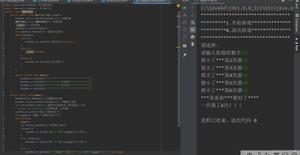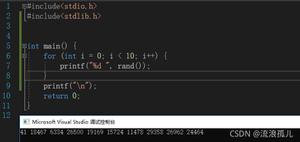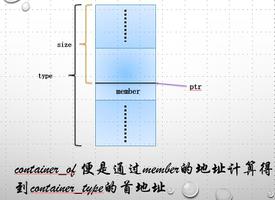对于Java 中 Consumer 和函数式接口机制的疑问?

我是一个Java初学者
对于Consumer和函数式接口机制我感到不理解。
这是其接口的部分源码:
@FunctionalInterfacepublic interface Consumer<T> {
/**
* Performs this operation on the given argument.
*
* @param t the input argument
*/
void accept(T t);
// ....
}
假设我现在有一个测试方法来使用:
@Testpublic static void testConsumer(){
Consumer<Integer> square = x -> System.out.println("print square : " + x * x);
square.accept(2);
}
我不理解的是 这个系统自带的函数式接口,我并没有去“实现”它的逻辑,可是当使用accept方法传参时,在Lambda表达式中的x却能接受到accept提供的值,就好像在哪里回调了一样,但我事实上并没有对accept方法做任何的实现,这是怎么回事呢?
回答:
Java接口里只有一个抽象方法时,这个接口是函数式接口。比如注解@FunctionalInterface也定义了这是一个函数式接口。Consumer是典型的函数式接口。
那么你在Test中的代码实际上就把函数式接口隐式转换成了一个Lambda表达式来实现。
具体在编译时编译器会根据Lambda规范判断形参是否满足函数式接口里面唯一抽象方法的定义,满足则编译通过,会正常推导Lambda表达式。
回答:
这是 Java 语言中对 SAM 类型的一种语法糖,如果你要继承的抽象类或者接口只包含一个必须要实现的方法,那么你可以直接用 lambda 表达式进行赋值
回答:
建议你去搜索一下 Java 8 函数式接口。
Java 的 Lambda 本质是用接口实现的,就是只有一个方法接口的接口
回答:
Consumer<Integer> square = x -> System.out.println("print square : " + x * x);相当于
public class IntegerConsumerImpl<Integer> implements Consumer<Integer>{ void accept(Integer x) {
System.out.println("print square : " + x * x);
}
}
Consumer<Integer> square = new IntegerConsumerImpl<>();
编译器简化了代码
.
回答:
Consumer<Integer> square = x -> System.out.println("print square : " + x * x);square.accept(2);
其中System.out.println("print square : " + x * x) 就是你对accpet方法的实现
然后square.accept(2)你又调用了你的实现
以上是 对于Java 中 Consumer 和函数式接口机制的疑问? 的全部内容, 来源链接: utcz.com/p/944464.html






